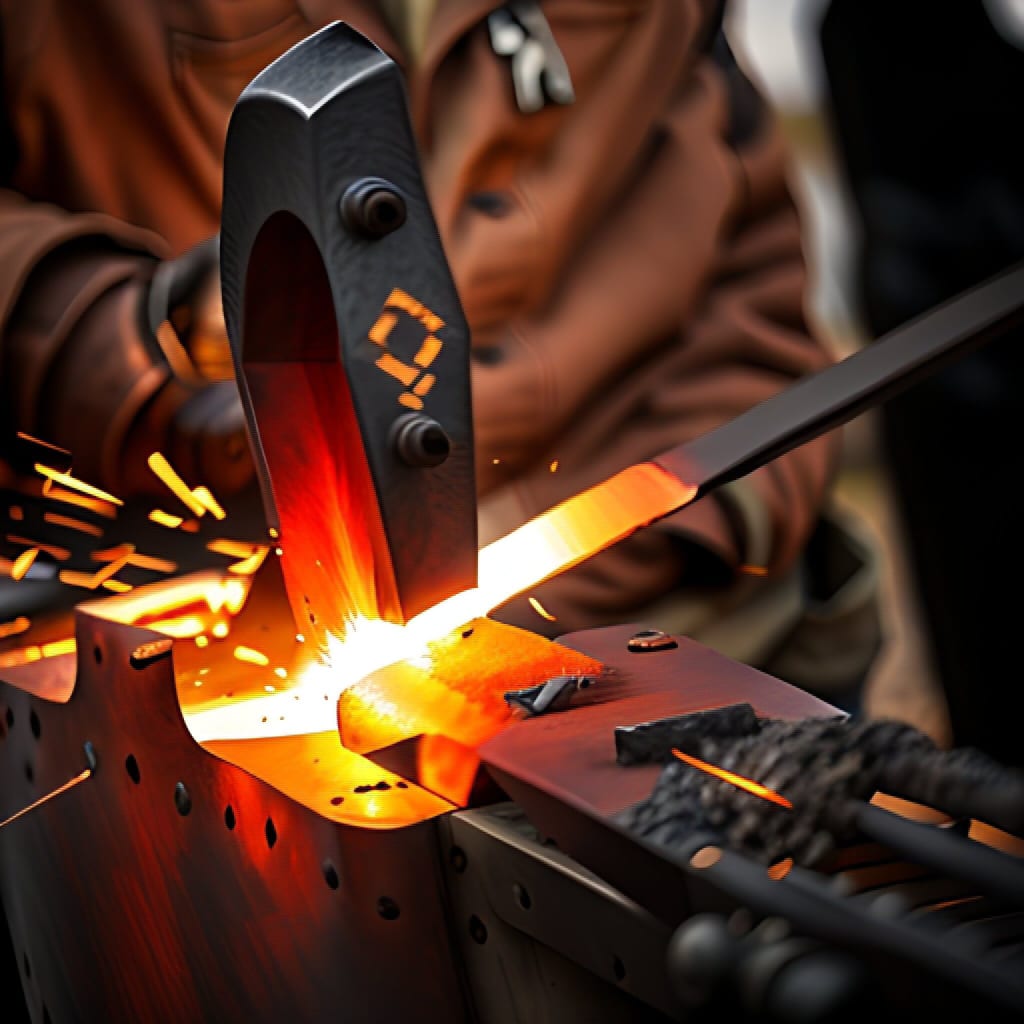Medieval Blacksmith Master
My medieval occupation

If I had been born in the medieval days, it is quite likely that I would have pursued a career as a blacksmith. The role of a blacksmith held immense significance during that time, making it one of the most vital and respected professions.
As a blacksmith, I would have found myself at the heart of the community, providing essential services to both the nobility and the common folk. My days would have been filled with the rhythmic pounding of the hammer against the anvil, shaping red-hot metal into various forms and fulfilling the needs of the people around me.
The medieval blacksmith was an expert in the art of metallurgy, possessing intricate knowledge of working with iron and other metals. From forging weapons and armor for knights and soldiers to crafting everyday tools for farmers and craftsmen, the blacksmith played an indispensable role in supporting the economy and ensuring the well-being of the community.
I would have spent my days toiling in a bustling forge, surrounded by the intense heat, the roaring flames, and the distinct smell of burning coal. Through years of practice and apprenticeship, I would have honed my skills, mastering the techniques of shaping, tempering, and welding metals.
My workshop would have been equipped with a variety of tools, such as hammers, tongs, anvils, and water troughs. I would have worked with great precision, transforming raw materials into functional and durable objects. Whether it was a finely crafted sword, a sturdy plowshare, or a decorative piece of ironwork, I would have taken great pride in my creations.
Beyond the physical labor, being a blacksmith would have required me to possess a deep understanding of the properties of different metals and alloys. I would have experimented with different compositions, striving to achieve the perfect balance of strength, flexibility, and durability in the items I crafted. A successful blacksmith was not only skilled with his tools but also knowledgeable about the science behind his craft.
In addition to forging objects, I would have also played a role in the cultural and social life of the medieval community. Blacksmiths were often considered knowledgeable and well-respected individuals. People would have sought my advice, turned to me for assistance, and trusted me with their valuable possessions. My status as a blacksmith would have elevated me to a position of influence and esteem within the community.
Life as a medieval blacksmith would not have been without its challenges. The physical demands of the job would have been rigorous, requiring strength, endurance, and dexterity. Long hours in front of the forge and exposure to extreme heat would have tested my resilience. Nevertheless, the satisfaction of transforming raw materials into functional and beautiful objects would have made it all worthwhile.
As a blacksmith, I would have been a vital cog in the medieval wheel, contributing to the progress and development of society. The skills I would have acquired and the impact I would have made in the lives of others would have left a lasting legacy, shaping the history of the time.
My work as a blacksmith would not have been limited to the confines of my workshop. I would have also had the opportunity to travel and collaborate with other skilled craftsmen, exchanging knowledge and techniques to further refine my craft. Blacksmiths often formed close-knit communities, supporting each other and sharing their expertise.
In addition to fulfilling the practical needs of the community, I would have also contributed to the defense and security of the realm. Knights and warriors relied on the expertise of blacksmiths to forge weapons and armor that could withstand the rigors of battle. As conflicts arose, I would have played a crucial role in arming the soldiers and ensuring their equipment was in optimal condition.
The medieval blacksmith's craft was not limited to functional objects; it also encompassed the realm of artistry. Intricate ironwork and decorative pieces adorned castles, cathedrals, and noble residences. I would have had the opportunity to unleash my creativity, combining my technical skill with artistic flair to create beautiful and ornate designs. From elaborately crafted gates and railings to chandeliers and household utensils, my work would have reflected the aesthetic sensibilities of the time.
As a blacksmith, I would have been seen as a master of fire and metal, harnessing the elements to transform the raw into the refined. The role would have required continuous learning and adaptation, as new techniques and materials emerged. I would have pushed the boundaries of my craft, constantly seeking improvement and innovation.
Beyond the practical and artistic aspects, being a blacksmith would have connected me to the rich folklore and traditions of the medieval era. Blacksmiths were often associated with mythical and legendary figures, such as Hephaestus in Greek mythology or Wayland the Smith in Norse mythology. These stories and legends would have imbued my work with a sense of mystique and wonder, elevating the significance of my craft in the eyes of the people.
As I reflect on the life of a medieval blacksmith, I am reminded of the integral role they played in shaping the world around them. Their dedication, skill, and contribution to society made them indispensable members of their communities. Though the world has evolved, and the role of a blacksmith has transformed over time, their legacy lives on as a testament to the power of craftsmanship and the enduring impact of skilled trades.





Comments
There are no comments for this story
Be the first to respond and start the conversation.